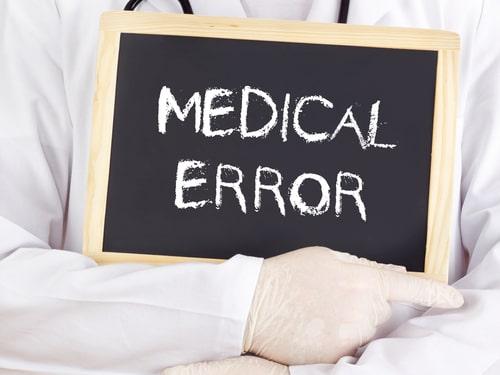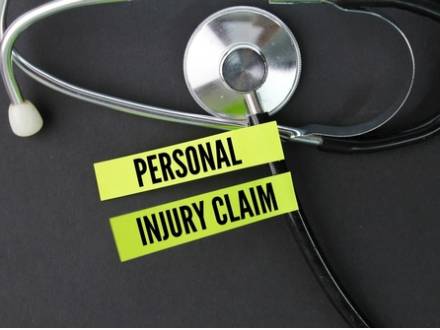121 S. Wilke Road, Suite 301, Arlington Heights, IL 60005
Home and Hospital Visits for Your Convenience
Serving Clients Across 7 Illinois Locations
Recent Blog Posts
Can Pre-Existing Injuries Harm Your Accident Case in Illinois?
 Pre-existing injuries do not automatically harm your personal injury case in Illinois, but they often become a major focus for insurance companies. Many people worry that if they had a prior injury or medical condition, they cannot recover compensation. That is not true.
Pre-existing injuries do not automatically harm your personal injury case in Illinois, but they often become a major focus for insurance companies. Many people worry that if they had a prior injury or medical condition, they cannot recover compensation. That is not true.
In data updated by the Centers for Disease Control and Prevention in 2025, about 76.4 percent of U.S. adults reported having at least one chronic health condition, such as arthritis, joint pain, or long-term back issues. Insurance companies are always looking to protect their bottom line. They regularly argue that pre-existing injuries harm your case to reduce or deny claims.
What Are the Most Common Types of Medical Malpractice?
 Medical care is meant to help patients heal. Sometimes, mistakes happen instead. These mistakes can cause serious harm. Medical errors are not rare. As of 2026, Illinois medical malpractice cases still require proof that a healthcare provider made a preventable mistake and that the mistake caused real harm.
Medical care is meant to help patients heal. Sometimes, mistakes happen instead. These mistakes can cause serious harm. Medical errors are not rare. As of 2026, Illinois medical malpractice cases still require proof that a healthcare provider made a preventable mistake and that the mistake caused real harm.
In a 2025 national benchmarking report, Candello, a healthcare risk analysis group connected to Harvard’s Risk Management Foundation, found that communication failures remain a leading cause of patient harm and malpractice risk across U.S. healthcare systems. When doctors, nurses, or hospitals fail to communicate clearly, patients can suffer preventable injuries.
Understanding the most common types of medical malpractice can help you recognize when care may have fallen below accepted standards. If you are worried about a medical injury, the Schaumburg, IL medical malpractice lawyers at Newland & Newland, LLP can help you understand your options.
What Makes a Strong Personal Injury Case in Illinois?
 A strong personal injury case in Illinois usually comes down to clear evidence, documented losses, and a direct link between someone else’s actions and your injury. You do not need a perfect case, but you do need proof that shows what happened, why it happened, and how it affected your life. As of 2026, Illinois personal injury law still places the burden on the injured person to prove fault and damages, which makes careful preparation and documentation critical from the start.
A strong personal injury case in Illinois usually comes down to clear evidence, documented losses, and a direct link between someone else’s actions and your injury. You do not need a perfect case, but you do need proof that shows what happened, why it happened, and how it affected your life. As of 2026, Illinois personal injury law still places the burden on the injured person to prove fault and damages, which makes careful preparation and documentation critical from the start.
Motor vehicle crashes remain a leading source of serious injuries, and in the first quarter of 2025, an estimated 8,055 people died in traffic crashes nationwide, according to early federal data. If you were hurt because of another person’s carelessness, the Arlington Heights, IL personal injury lawyers at Newland & Newland, LLP can help you build a strong claim.
Who Is Responsible for Parking Garage Injuries in Illinois?
 Responsibility for a parking garage injury in Illinois depends on who owned, managed, or controlled the garage and what caused the injury. Parking garage cases often involve multiple parties, including property owners and management companies. When someone is injured, the key issue is whether the injury could have been prevented with reasonable care, meeting the standards of premises liability laws in Illinois. If you were hurt in a parking garage, our Schaumburg, IL personal injury lawyers can help explain who may be legally responsible.
Responsibility for a parking garage injury in Illinois depends on who owned, managed, or controlled the garage and what caused the injury. Parking garage cases often involve multiple parties, including property owners and management companies. When someone is injured, the key issue is whether the injury could have been prevented with reasonable care, meeting the standards of premises liability laws in Illinois. If you were hurt in a parking garage, our Schaumburg, IL personal injury lawyers can help explain who may be legally responsible.
How Does Illinois Law Determine Responsibility for Parking Garage Injuries?
Most parking garage injury claims fall under Illinois premises liability law. This area of law focuses on whether a property was kept reasonably safe for people who were allowed to be there.
How Insurance Companies Minimize Grief To Avoid Payouts
 Losing a loved one in a fatal accident is devastating. During this time, insurance companies often step in quickly and present themselves as wanting to help. From an attorney’s perspective, this is also the time when families face the greatest risk of unfair treatment. Insurers use quiet tactics to minimize loss and reduce what they pay. If this is happening to you, contact our Rolling Meadows, IL wrongful death lawyers for guidance.
Losing a loved one in a fatal accident is devastating. During this time, insurance companies often step in quickly and present themselves as wanting to help. From an attorney’s perspective, this is also the time when families face the greatest risk of unfair treatment. Insurers use quiet tactics to minimize loss and reduce what they pay. If this is happening to you, contact our Rolling Meadows, IL wrongful death lawyers for guidance.
Why Do Insurance Companies Contact Families So Quickly After a Fatal Accident?
Insurance companies often reach out shortly after a fatal accident. Adjusters may ask for statements, medical records, or permission to access information. These requests may seem routine, but timing matters.
Common Emergency Room Mistakes That Lead to Medical Malpractice Claims
 Emergency rooms are high-stress, busy places. Doctors and nurses often have to make quick decisions. Unfortunately, they do not always make the right ones. Even a small mistake can lead to serious problems for a patient.
Emergency rooms are high-stress, busy places. Doctors and nurses often have to make quick decisions. Unfortunately, they do not always make the right ones. Even a small mistake can lead to serious problems for a patient.
If you believe you were hurt because of poor care in an emergency room, the Arlington Heights, IL medical malpractice lawyers at Newland & Newland, LLP can help. Medical malpractice claims are often challenging. We can walk you through the evidence needed to establish a strong claim for compensation.
What Are the Most Common Emergency Room Mistakes?
Emergency room workers handle many patients at once. Even skilled medical professionals can make errors when things move too fast. Some mistakes that can result in a medical malpractice claim include:
Who Is Liable for Food Poisoning From Delivered Food?
 Nobody places a food delivery order and expects to get food poisoning. However, when it happens, it raises questions about who should take responsibility for the resulting damages. What are your rights? Who is liable for food poisoning from delivery? In Illinois, you may be able to recover compensation if someone’s carelessness caused your illness. Our experienced Rolling Meadows, IL food poisoning lawyers can help you understand your options and build your claim against the responsible party.
Nobody places a food delivery order and expects to get food poisoning. However, when it happens, it raises questions about who should take responsibility for the resulting damages. What are your rights? Who is liable for food poisoning from delivery? In Illinois, you may be able to recover compensation if someone’s carelessness caused your illness. Our experienced Rolling Meadows, IL food poisoning lawyers can help you understand your options and build your claim against the responsible party.
Can You Sue for Food Poisoning From Delivery in Illinois?
Under the Illinois Food Handling Regulation Enforcement Act, restaurants and food workers must follow strict sanitation and temperature control rules. These laws help prevent bacteria and viruses from growing in food, and the rules apply to dine-in, takeout, and delivery orders. If a restaurant ignores these safety standards and you become ill, it may be legally responsible.
Can I Recover Damages if a Family Member’s Dog Attacked Me in Their Home?
 A dog attack can lead to devastating physical, emotional, and financial consequences. When the dog belongs to a family member, the situation might feel extremely sensitive. People sometimes hesitate to take legal action because they do not want to cause tension within the family. However, Illinois law protects victims of dog attacks, even when the dog’s owner is someone close to them. Our Schaumburg, IL dog bite lawyers can walk you through the legal process and help make the process manageable.
A dog attack can lead to devastating physical, emotional, and financial consequences. When the dog belongs to a family member, the situation might feel extremely sensitive. People sometimes hesitate to take legal action because they do not want to cause tension within the family. However, Illinois law protects victims of dog attacks, even when the dog’s owner is someone close to them. Our Schaumburg, IL dog bite lawyers can walk you through the legal process and help make the process manageable.
What Should You Do Right After a Dog Bite in Illinois?
If a dog bites you, the first step is to get medical attention right away. Even what appears to be a small wound can become infected or lead to long-term complications. A doctor will take care of the injury and document it for your medical records. That documentation will be important if you decide to seek compensation later.
Can My Statement to the Insurance Adjuster Hurt My Injury Case in Illinois?
 After an accident, you may receive a quick call from an insurance adjuster asking for your side of the story. It might seem like a simple step toward resolving your claim, but yes, what you say can have a lasting impact and may hurt your case later. You likely would not even realize why your insurance statement could be used against you in your personal injury case.
After an accident, you may receive a quick call from an insurance adjuster asking for your side of the story. It might seem like a simple step toward resolving your claim, but yes, what you say can have a lasting impact and may hurt your case later. You likely would not even realize why your insurance statement could be used against you in your personal injury case.
Insurance companies often record these conversations and look for anything you said that they can use to reduce payouts. Before talking to an adjuster, speak with an experienced Palatine, IL personal injury lawyer. That is the first step in protecting your claim.
Who Is Liable if I Fall on Sidewalk Ice in Illinois?
 When you slip and fall on an icy sidewalk, it can cause serious injuries. These accidents can leave you with significant medical bills and lost income. In Illinois, you may be able to recover those costs with a premises liability claim. If you are injured on a sidewalk, whether it is from ice or any other dangerous condition, speaking with experienced Rolling Meadows, IL premises liability lawyers can help you understand your legal options and protect your rights.
When you slip and fall on an icy sidewalk, it can cause serious injuries. These accidents can leave you with significant medical bills and lost income. In Illinois, you may be able to recover those costs with a premises liability claim. If you are injured on a sidewalk, whether it is from ice or any other dangerous condition, speaking with experienced Rolling Meadows, IL premises liability lawyers can help you understand your legal options and protect your rights.
Who Is Responsible for Clearing Ice and Snow on Sidewalks in Illinois?
Responsibility for a slip-and-fall accident on a sidewalk depends on where the fall took place. It could be next to a private home, an apartment building, a business, or on city property. Illinois law makes a distinction between natural accumulation and unnatural accumulation of ice. Natural accumulation is ice that forms from normal winter weather. Under Section 1 of the Illinois Snow and Ice Removal Act, residential property owners are encouraged to remove snow and ice. They often cannot be held liable for injuries caused by natural accumulation.

 Spanish
Spanish Cantonese
Cantonese



















